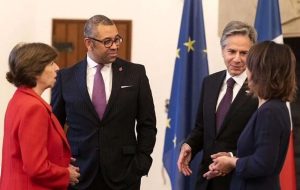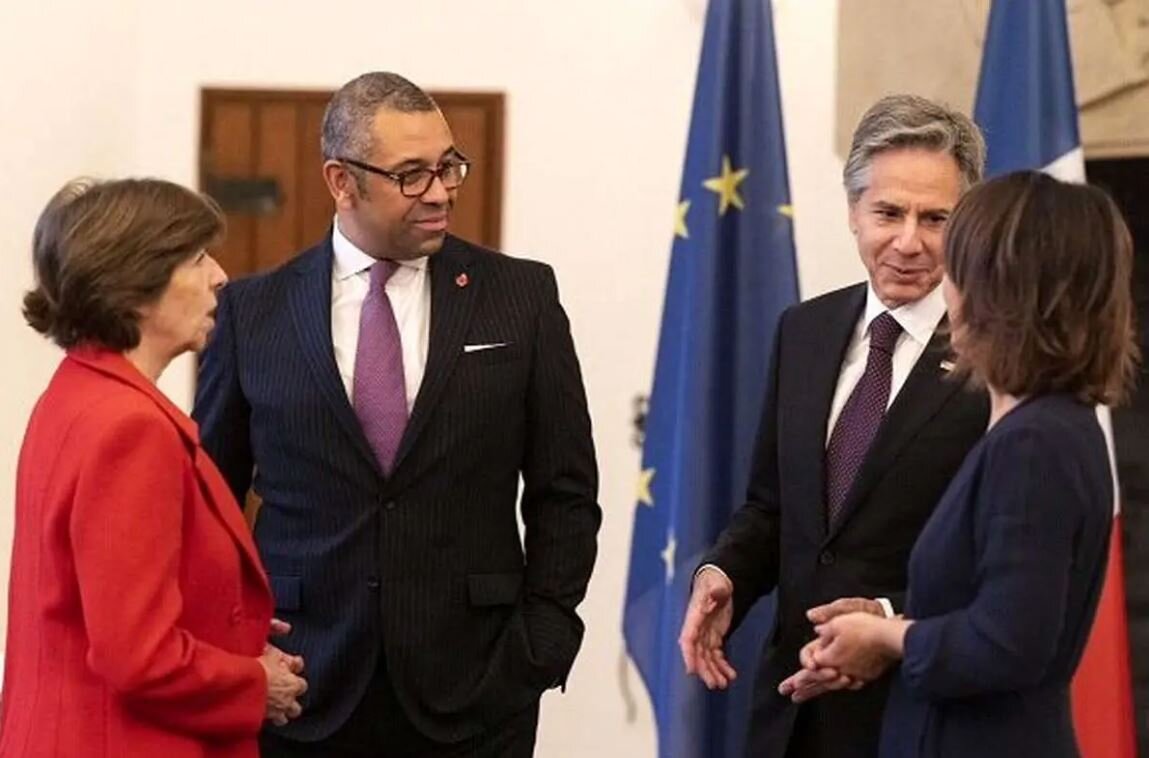US, European states ramp up pressure on Iran for its nuclear program in new statement
TEHRAN – The United States, the United Kingdom, France, and Germany have issued a joint statement urging Iran to renew its cooperation with the International Atomic Energy Agency (IAEA). The statement follows the adoption of a resolution critical of Tehran in the IAEA Board of Governors, spearheaded by these Western nations. Iran has denounced the


TEHRAN – The United States, the United Kingdom, France, and Germany have issued a joint statement urging Iran to renew its cooperation with the International Atomic Energy Agency (IAEA).
The statement follows the adoption of a resolution critical of Tehran in the IAEA Board of Governors, spearheaded by these Western nations.
Iran has denounced the resolution as politically motivated and accused the countries of undermining constructive engagement.
The joint statement, published on the U.S. State Department’s website, claims the resolution is a response to Iran’s alleged failure to address unresolved questions about undeclared nuclear materials discovered at multiple sites.
According to the statement, these issues are “essential for the IAEA to ensure the exclusively peaceful nature of Iran’s nuclear program.” The Western countries emphasized Iran’s legal obligation under the Treaty on the Non-Proliferation of Nuclear Weapons (NPT) to fully cooperate with the IAEA and provide a complete account of its nuclear activities.
Kazem Gharibabadi, Iran’s Deputy Foreign Minister for Legal and International Affairs, had previously explained that the IAEA’s concerns stem from claims dating back decades. “The IAEA raised four safeguards issues five to six years ago based on documents and information it received, alleging the presence of nuclear activity and materials at certain sites. These claims relate to activities that supposedly occurred two to three decades ago,” Gharibabadi said.
He added that Iran had provided detailed responses to these allegations at the time and resolved two of the four issues by demonstrating that no nuclear activity or materials were present at the disputed sites. “We are confident that through continued cooperation, free from political pressure, we can also resolve the remaining two cases,” Gharibabadi stated.
Despite Iran’s assertions, the joint statement from the U.S. and European signatories accuses Tehran of failing to provide the necessary transparency. It notes that the IAEA Board of Governors previously warned in June that additional actions would be required if Iran did not deliver “full, clear, and unambiguous cooperation.” The Western nations allege that Iran has instead responded with “threats and provocations,” failing to address critical safeguards concerns for nearly five years.
The Western criticism stands in contrast to Grossi’s remarks following his recent visit to Tehran. Grossi praised Iran’s agreement to limit its stockpile of 60%-enriched uranium, describing it as “a significant development and a constructive step.”
In their joint statement, the Western nations reiterated their support for the IAEA’s efforts and urged Iran to seize the opportunity to resolve the remaining issues. They emphasized that addressing these concerns would allow the IAEA to verify the peaceful nature of Iran’s nuclear activities and maintain international oversight.
The statement concluded with a warning that the Western nations would continue to closely monitor Iran’s actions and remain vigilant in ensuring compliance with international safeguards.
Despite the mounting criticism, Iran has reiterated its commitment to engaging with the IAEA. Iranian officials have urged the agency to operate independently and resist external political influence, warning that such interference risks undermining its credibility.
